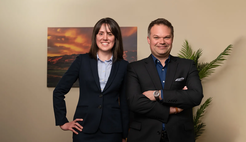Even before COVID spread to all corners of the world and caused isolation, loneliness has been running rampant. In some countries with community-based cultural values, the effects may have not been as palpable. However, in the United States, throughout Europe, and also in Asia, loneliness has become a silent killer. Depending on the person, their situation, and the availability of social support, loneliness can lead to an increased risk of heart disease, depression, anxiety, addiction, and an earlier death.
In the same report on loneliness and its grave consequences, the CDC notes that these outcomes can occur even if someone doesn’t feel lonely. It also costs the American economy almost $406 billion annually. To resolve this crisis, countries globally have created loneliness ministers and formulated national strategies to cultivate social connection.
While these initiatives are improving some lives, it’s nearly impossible to solve a problem without the correct infrastructure. Loneliness is a unique phenomenon that results from a myriad of factors. As a result, solutions have been fragmented, mostly handling the effects of a bigger root problem. This is why the number of people experiencing loneliness isn’t declining.
The US Surgeon General's 2023 report on social isolation and loneliness reveals some shocking statistics. As mentioned previously, loneliness and social isolation decrease life expectancy. However, many people aren’t aware that these issues increase the likelihood of premature death by up to 29%. Based on this metric, limited social connections increase premature death to the same level as someone who smokes up to 15 cigarettes daily. Loneliness and isolation are more common than most of society’s major health issues including smoking, diabetes, and obesity.
Surveys also show that youth score higher than seniors when it comes to loneliness. This unexpected trend prompts the question of what causes young people to struggle with making friends and finding community.
Social media certainly contributes to a growing divide between our peers and encourages competitive behaviors. However, friendship is frequently taken for granted in society. Most people are focused on finding romantic partners while forgetting how important it is to build a community of friends.
What’s even more concerning about the loneliness epidemic is how few people recognize it as a major societal problem. The US Surgeon General report notes that under 20% of people who often feel lonely or isolated see it as a problem. These attitudes cause stigma that prevents people from reaching for community support.
Laura and Robert Illig, the co-founders of Sidekick, a social catalyst platform that helps adults make in-person friends through common interests, are trying to solve this problem. By leveraging technology, Sidekick users connect in real life with nearby people who share the same interests. They can also join Kickit events scheduled around these hobbies.
Robert and Laura are like most average people. They’ve struggled to maintain friendships as personal circumstances change. The couple has lived in multiple countries throughout their careers, forcing them to find new friends through community groups. Due to the Illigs' struggles and those they have observed in youth, the pair were motivated to start transforming friendship culture through human-centered technology.
Sidekick’s current app, which is being beta-tested, was designed by the company’s team alongside co-creator college students. These interns were critical for tailoring Sidekick into an inclusive, authentic, and safe environment for making friends. The company differentiates itself from the social networking industry which has evolved into a sometimes toxic and profit-focused sector. The Sidekick team has remained human-centered from the beginning, stripping away the harmful sides of social media to make a platform that builds real-life connections through thoughtful design.
Robert and Laura are excited about the future of Sidekick, as the platform’s user base is growing steadily.
“The more people that join Sidekick, the more connections users will be able to find in their vicinity,” says CEO and co-founder Laura Illig. “This opens up great opportunities for friendship, but will also help our team receive important feedback to ensure Sidekick is always serving our users’ needs.”
Sidekick has taken an innovative approach to mitigating loneliness and advocating for a healthier culture of friendship. The company hopes that its in-person focus on adult friendships can unite communities in the United States, and eventually across the world.
If you’re interested in trying Sidekick’s adult friendship services, visit the App Store to download Sidekick for Friends.
Media Contact
Name: Laura Illig
Email: [email protected]






